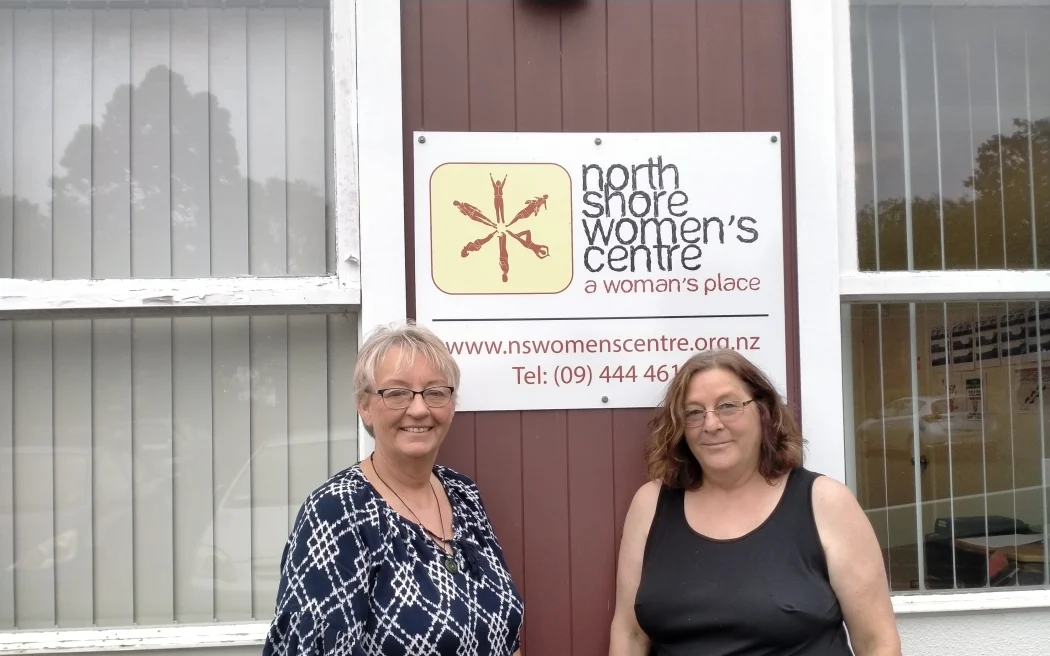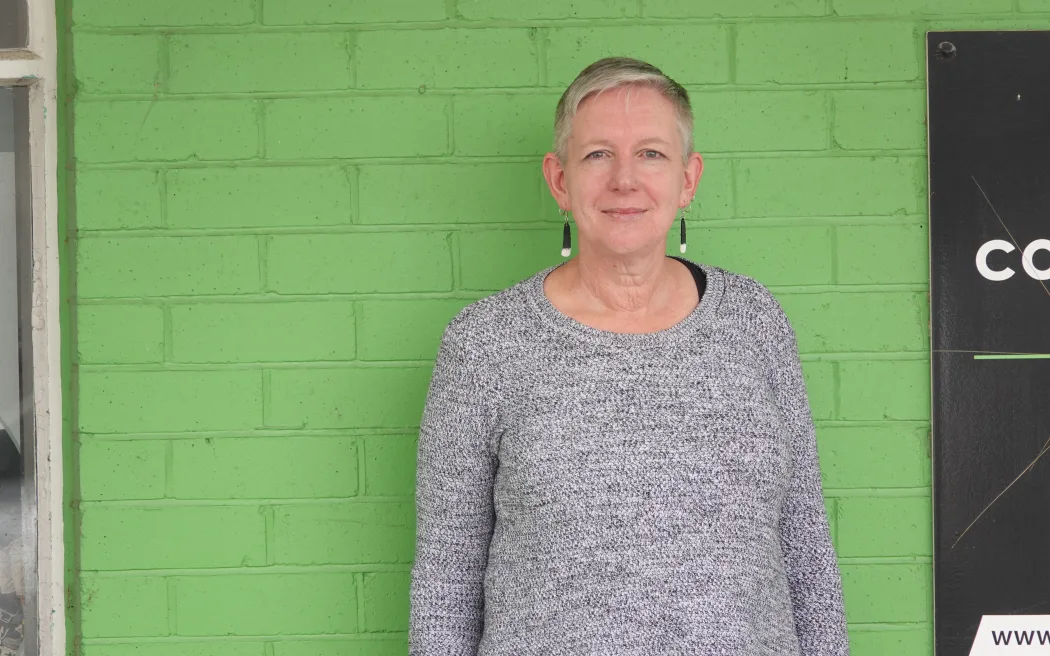Auckland's North Shore Women's Centre to close its doors due to funding shortfalls
RNZ
22 August 2025, 10:52 PM
 Dawn Hutchison, left, and Tracey Swanberg say when the North Shore Women's Centre closes women will have to try the find support at other under-pressure services. Photo: Supplied
Dawn Hutchison, left, and Tracey Swanberg say when the North Shore Women's Centre closes women will have to try the find support at other under-pressure services. Photo: Supplied- Auckland women's centre to close in November
- Rangitīkei counselling service cuts number of days it opens
- These are the after-effects of last year's Oranga Tamariki belt-tightening
- Oranga Tamariki says it saved $30 million.
Auckland's North Shore Women's Centre will close its doors in November due to funding shortfalls after providing help and support to women for almost four decades.
Meanwhile, a rural counselling service in Rangitīkei has cut back its hours.
Both organisations lost funding last year during Oranga Tamariki's belt-tightening, which it says has saved tens of millions of dollars.
But the services which are cutting back say it has come at a cost.
Funding dries up
Opening in 1990, the North Shore Women's Centre provides social services, such as help for domestic violence victims, post-birth support and legal advice, to about 500 women a year, as well as almost as many children.
It will close its doors at the end of November.
Centre manager Tracey Swanberg said that would leave a void.
"We have really skilled counsellors, social workers and community-support workers with decades and decades of experience working in this space.
"One of the things we've been saying out loud is, 'Where are these women going to go? Because, quite frankly, no one's going to fill the space that we're filling'."
The centre's $118,000 a year Oranga Tamariki contract was cut with little notice in June last year.
Swanberg said the centre always over performed, so the loss came out of the blue and without much explanation.
"OT was not able to give us an answer apart from the fact, I think, they were trying to claw back some money and their focus was around children and our focus is, of course, wahine.
"But, they all have children in their care and it doesn't seem right that when you're focused on a child you're not focused on the mother and her wellbeing as well."
The centre's costs were rising, including after the social worker pay equity case raised salaries in 2023. It now took about $500,000 a year to run the centre, up from about $360,000.
Swanberg said it had also recently lost a further programme contract, while community grants were harder to get.
"Because the sector is under such pressure those funders are under huge pressure, so they're not able to fund at the level they used to.
"We've basically been working really frugally and working on a shoestring, and are in the process of using up our reserves."
Centre operations manager Dawn Hutchison said once that was gone, that was it.
Women who relied on the centre would have to call on other under-pressure services.
"We talk about the tsunami of harm. At the moment it's building and it's going to get a lot worse," she said.
"We're looking for that fairy godmother out there, but we know that's not going to happen. We're really concerned for the wellbeing of our families."
The centre has nine staff.
Oranga Tamariki deputy chief executive for commissioning and investment Benesia Smith said the centre was predominantly focused on support for parents and "was not well aligned with the core purpose of Oranga Tamariki and the priority cohorts of children Oranga Tamariki support".
"A transition plan, along with funding of $50,000 from July to 30 September 2024, supported the provider to work with their 28 counselling clients and 16 social work clients in its service as at August 2024 to conclude their services."
There were many alternative parent and family services across Auckland funded by government agencies, including telehealth and online services, she said.
Services cut
In Rangitīkei, the Marton Counselling Centre took an almost $30,000 hit when its Oranga Tamariki contract was reduced last year.
Manager Anna Sophia said the centre was now seeing fewer people.
"We have actually lost a counselling day in there. Because of the funding cut we had to look at restructuring, but as it happens one of the counsellors resigned, so we've just chosen not to fill that day.
"We're no longer open on a Friday, which is a loss of service and a loss to our community."
The centre's outgoings were about $250,000 a year and this year it had picked up community grants and a donation from a local philanthropist.
Sophia said the centre prided itself on not making people wait for counselling, but with the future uncertain that could change.
"We can tighten our belts, but that is a tightening up of our services and our community suffers.
"We don't really know what to do. I guess because I'm a reasonably optimistic, hopeful person I'm hoping that somewhere, someone's going to step in with some funding and save the day for this next financial year."
Smith said Oranga Tamariki reduced the number of counselling services it bought from the centre, so funding fell $28,000 to $90,000 a year.
"The service was assessed for alignment to core priorities and responsibilities of Oranga Tamariki, and a reduction was made to ensure investment was shifted to more intensive supports for tamariki in care.
"A transition plan was not developed for this provider, but the expectation was that they would adjust the number of clients and prioritise according to need, to match the funding across the financial year.
"These expectations were directly discussed with the provider."
Oranga Tamariki did not fund other face-to-face counselling services in Rangitīkei, bit did fund some in the wider Manawatū-Whanganui region. National telehealth services were also available.

Anna Sophia says the Marton Counselling Centre which now seeing fewer people after it took an almost $30,000 hit when its Oranga Tamariki contract was reduced last year. Photo: Jimmy Ellingham / RNZ
Cuts save millions
Smith said 236 services were affected by funding reductions, or complete cuts.
One-hundred-and-ninety providers had contracts ended and 124 had funding reduced during an agreed transition period in the past financial year.
Decisions about that were based on utilisation rates, whether the service aligned with Oranga Tamariki's core purpose and to allow investment in other services.
Smith said Oranga Tamariki saved $30 million through its "baseline savings exercise".
Over time the number of services it funded had reduced because "we have created efficiencies through a deliberate strategy of service consolidation".
"This work is ongoing," Smith said.
"We always work within a limited budget and in line with our statutory responsibilities. Our job is to maintain focus on value for money, and eliminate duplication, ensure maximum utilisation and find more efficient ways to procure services."
The overall spend on contracted services had remained stable for the past five years, at about $500m a year.
Smith said providers around New Zealand had been consulted for the past two months and feedback was being collated to assess Oranga Tamariki's approach to commissioning.
Contracts that were to end on 30 June this year were extended by six months.
"This six-month period is to allow for Oranga Tamariki to develop advice on our future commissioning approach for ministerial consideration and then implement those decisions in a timely fashion," Smith said.
"During the regional engagement process, providers were advised that Oranga Tamariki would be in touch late September with next steps for those providers that have contracts ending on 31 December 2025."
This story was originally published by RNZ



